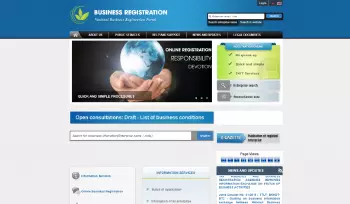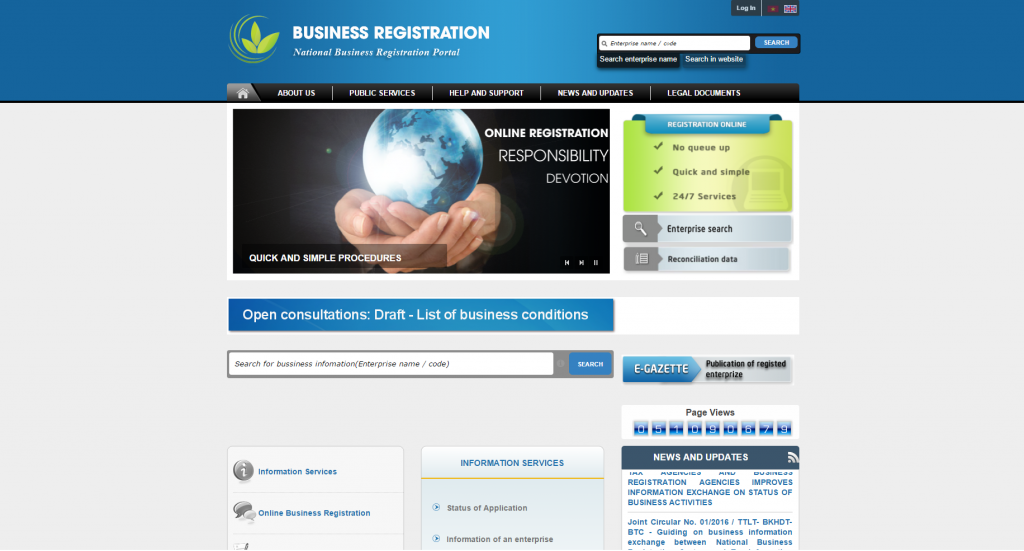- August 31, 2010
- Posted by: Đào Nhật Minh
- Category: Success stories

In 2008, UNIDO started implementing the project “Technical Assistance to Business Registration Reform in Viet Nam”. The project aimed at assisting the Government of Socialist Republic of Viet Nam to establish a national, centralized, fully computerized and business consolidated registration system operated in 64 provinces. The Ministry of Planning and Investment, the General Department of Tax, the General Statistics Office, the Ministry of Public Security and 64 provincial Business Registration Offices would be assisted in setting up nationwide single-point-registration for business, tax, statistics and seal-engraving permits.

The overall objectives for the Reform Phase A were:
- Reduction of the cost and time for completion of the registration requirements by simplification and standardization of the pre-registration requirements and the registration procedures and steps.
- Reduction of transaction risks and costs of business activities by improving the information service with nationwide access to official information on the legal representation of enterprises.
- Improvement of quality and efficiency for public administration in relation to the management of information on enterprises and its activities.

Hyperlogy was responsible for:
- Analysis of the existing register situation.
- Develop the National Business Registration System:
- Nationally harmonized single-point-registration services performed by the 64 BROs at provincial level, securing the same service regardless of business location.
- National Business Registry comprising of legally valid enterprise data from the BROs, which will be technically operated at the national level
- Single-point-registration by submission of a consolidated application form covering the requirements for Tax registration.
- Unique ID of enterprises by the Tax-code.
- Reduce time for the completion of the registration procedures.
- Improved efficiency and quality of registration procedures and reduced risks for duplication of the use of business names.
- Transfer the existing business registration data to the new database.
- …
- Project quality assurance (preparation of the testing documentation, testing, preparation of the users manuals), temporary operation of the State officials register information system additional applications.
- Users training, i.e. training of register administrators and data operators.
Oracle Database Server (register database), and Microsoft Internet Information Server (applications) was used for the business registration management.
